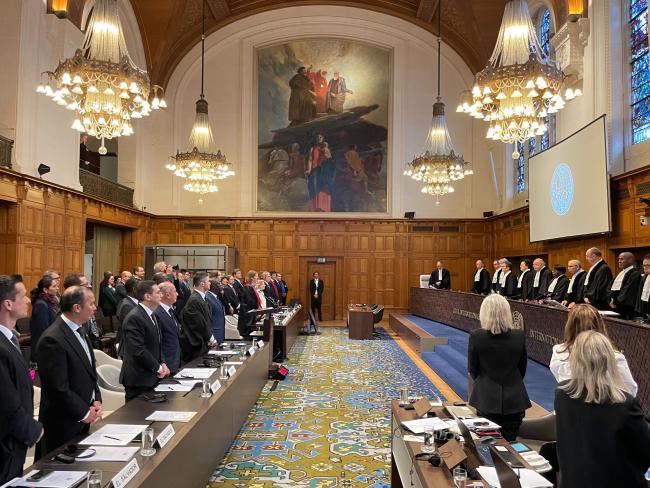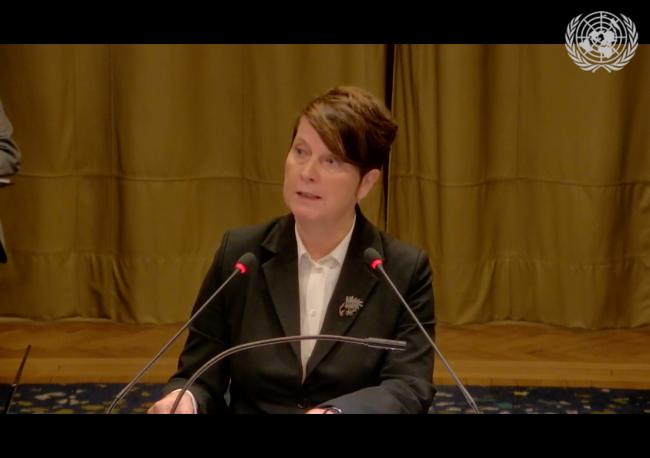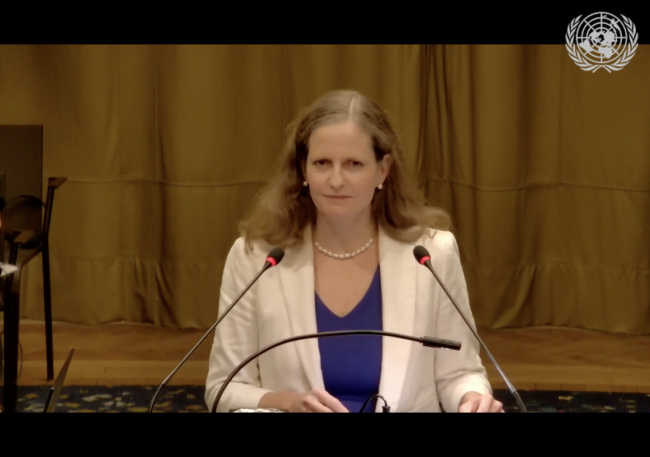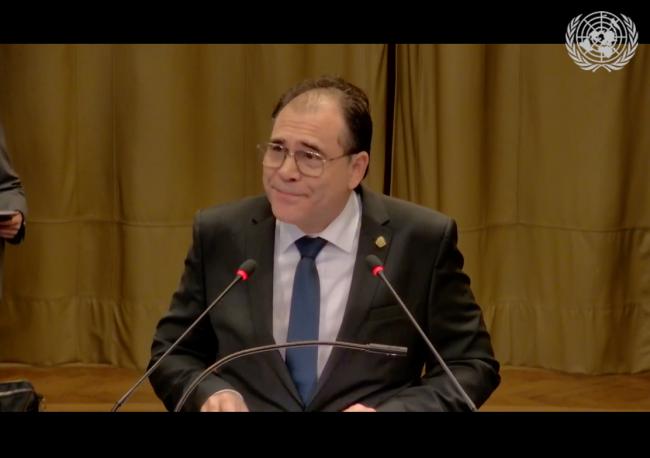After two days of monologic statements, Côte d’Ivoire shifted the tone by actively engaging with other countries’ positions, highlighting what they concur with and which arguments they refute. In several instances they cited foreign domestic court cases to identify inconsistencies with claims these countries put forward in front of the World Court. This strategy injected a sense of dialogue into the proceedings.
The Nordic countries emphasized that the Paris Agreement was always “designed to work over time,” with parties to increase their efforts in five-year cycles. They underscored that 2025 will be a milestone, since the next round of nationally determined contributions (NDCs) must be progressive and represent parties’ highest possible ambition.
How this “highest possible ambition” would be determined is unclear, however. Throughout the day, speakers shared their perspectives on the matter, especially in relation to the principle of common but differentiated responsibilities and respective capabilities (CBDR-RC) and the response to the first Global Stocktake. Côte d’Ivoire supported a dynamic perspective, including with regard to the developing country status, and rejected fossil fuel-dependent States’ claims for slower decarbonization. While emphasizing the centrality of CBDR-RC to climate action, the United Arab Emirates emphasized its stance that developing countries cannot use the principle as a pretext to avoid their responsibility.
The US highlighted there is no standard against which to assess highest possible ambition and argued that parties are not in breach of their obligations if they fail to achieve their NDCs. The Russian Federation considered the call for transitioning away from fossil fuels only a “political appeal” and, along with the Nordic countries, noted there is no agreement on what constitutes fair share contributions.
Costa Rica said the UN General Assembly’s request to the Court is not to condemn specific countries, but to clarify their obligations. They nevertheless underscored that the determination of individual responsibility is possible: it is quantifiable on the basis of historical and current emissions, and is not diminished by the fact that others also contributed to exacerbating climate change. Fiji took a similar position, whereas the Nordic countries countered there are no agreed standards to make such determination, citing a lack of reference to historical emissions in the Paris Agreement.
To receive free coverage of global environmental events delivered to your inbox, subscribe to the ENB Update newsletter.























